Ford Explorer EV vs Peugeot 308 SW - Differences and prices compared
Compare performance (340 HP vs 195 HP), boot space and price (34200 £ vs 30100 £ ) at a glance. Find out which car is the better choice for you – Ford Explorer EV or Peugeot 308 SW?
Costs and Efficiency:
When it comes to price and running costs, the biggest differences usually appear. This is often where you see which car fits your budget better in the long run.
Peugeot 308 SW has a somewhat advantage in terms of price – it starts at 30100 £ , while the Ford Explorer EV costs 34200 £ . That’s a price difference of around 4080 £.
In terms of energy consumption, the advantage goes to the Ford Explorer EV: with 14.50 kWh per 100 km, it’s barely noticeable more efficient than the Peugeot 308 SW with 15.20 kWh. That’s a difference of about 0.70 kWh.
As for electric range, the Ford Explorer EV performs distinct better – achieving up to 602 km, about 192 km more than the Peugeot 308 SW.
Engine and Performance:
Power, torque and acceleration say a lot about how a car feels on the road. This is where you see which model delivers more driving dynamics.
When it comes to engine power, the Ford Explorer EV has a clearly edge – offering 340 HP compared to 195 HP. That’s roughly 145 HP more horsepower.
In acceleration from 0 to 100 km/h, the Ford Explorer EV is decisively quicker – completing the sprint in 5.30 s, while the Peugeot 308 SW takes 7.70 s. That’s about 2.40 s faster.
In terms of top speed, the Peugeot 308 SW performs to a small extent better – reaching 225 km/h, while the Ford Explorer EV tops out at 180 km/h. The difference is around 45 km/h.
There’s also a difference in torque: Ford Explorer EV pulls significantly stronger with 679 Nm compared to 300 Nm. That’s about 379 Nm difference.
Space and Everyday Use:
Beyond pure performance, interior space and usability matter most in daily life. This is where you see which car is more practical and versatile.
Both vehicles offer seating for 5 people.
In curb weight, Peugeot 308 SW is clearly perceptible lighter – 1484 kg compared to 1908 kg. The difference is around 424 kg.
In terms of boot space, the Peugeot 308 SW offers to a small extent more room – 551 L compared to 450 L. That’s a difference of about 101 L.
In maximum load capacity, the Peugeot 308 SW performs slight better – up to 1483 L, which is about 61 L more than the Ford Explorer EV.
When it comes to payload, Ford Explorer EV somewhat takes the win – 585 kg compared to 508 kg. That’s a difference of about 77 kg.
Who wins the race?
The Ford Explorer EV proves to be outperforms in nearly all aspects and therefore becomes our DriveDuel Champion!
Ford Explorer EV is the better all-rounder in this comparison.
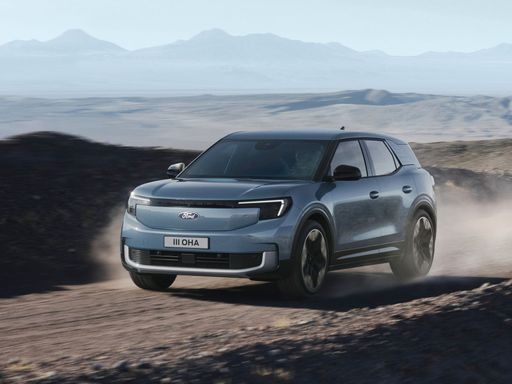
Ford Explorer EV
Costs and Consumption
View detailed analysis
Engine and Performance
View detailed analysis
Dimensions and Body
View detailed analysis
Ford Explorer EV
The Ford Explorer EV translates the familiar big‑American SUV presence into whisper‑quiet electric motoring, offering roomy seating and a tech‑forward cabin that will please families and road‑trippers alike. It drives with more composure than its boxy looks suggest, blending a comfortable ride and eager acceleration while undercutting the guilt of gas stops — a practical, modern alternative for buyers who want Explorer space with electric charm.
details
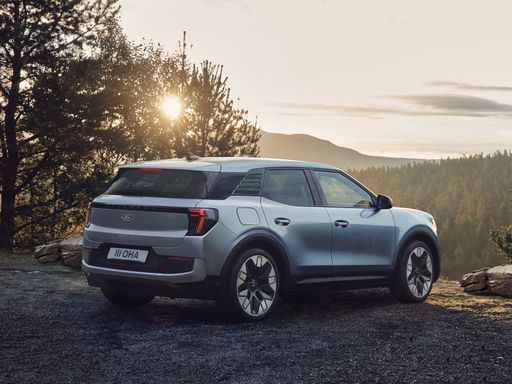
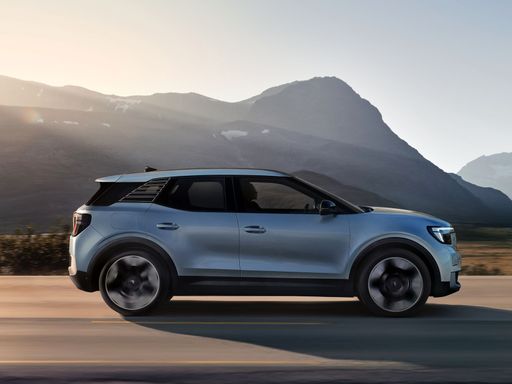
Peugeot 308 SW
The Peugeot 308 SW blends French flair with estate practicality, dressing up daily chores in a surprisingly handsome package. Inside it's cleverly laid out and comfortable, and the composed, entertaining drive makes family duty feel a little less like a chore.
details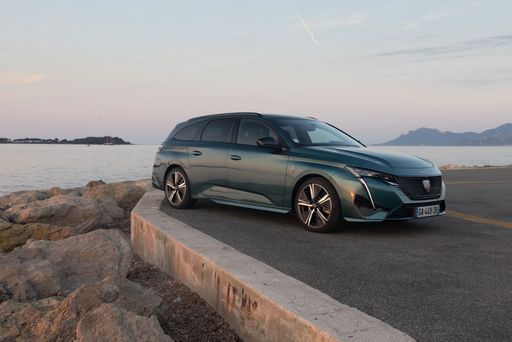
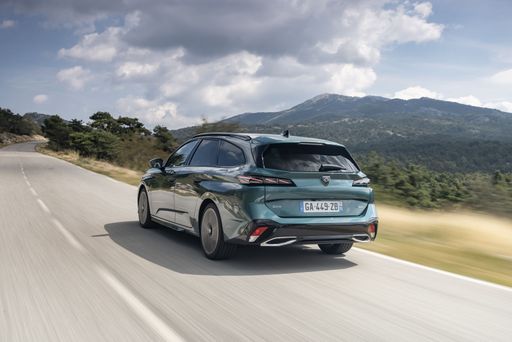
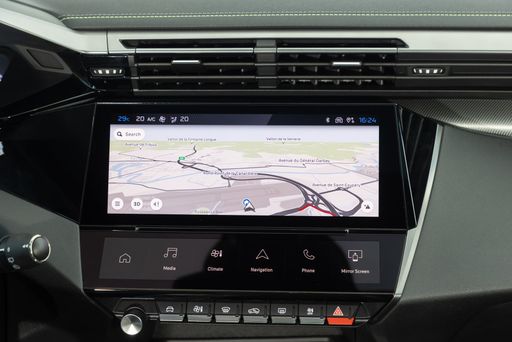
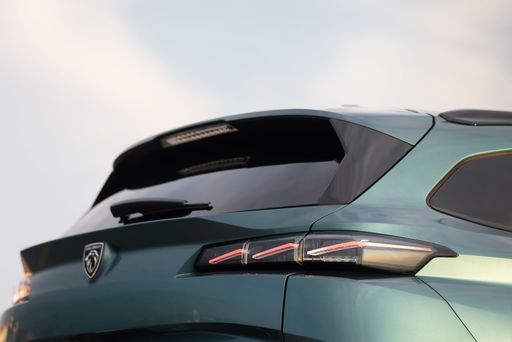
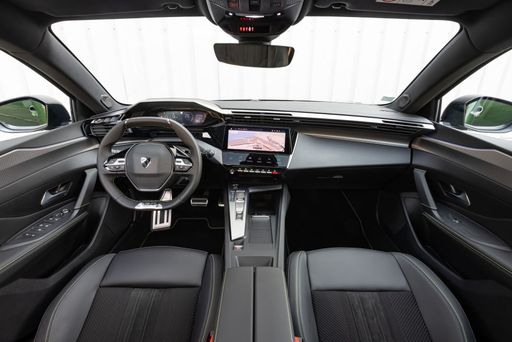
Costs and Consumption |
|
|---|---|
|
Price
34200 - 48800 £
|
Price
30100 - 43800 £
|
|
Consumption L/100km
-
|
Consumption L/100km
2.3 - 5.1 L
|
|
Consumption kWh/100km
14.5 - 17.2 kWh
|
Consumption kWh/100km
15.20 kWh
|
|
Electric Range
360 - 602 km
|
Electric Range
78 - 410 km
|
|
Battery Capacity
52 - 79 kWh
|
Battery Capacity
0.40 kWh
|
|
co2
0 g/km
|
co2
0 - 130 g/km
|
|
Fuel tank capacity
-
|
Fuel tank capacity
42 - 52 L
|
Dimensions and Body |
|
|---|---|
|
Body Type
SUV
|
Body Type
Estate
|
|
Seats
5
|
Seats
5
|
|
Doors
5
|
Doors
5
|
|
Curb weight
1908 - 2179 kg
|
Curb weight
1484 - 1783 kg
|
|
Trunk capacity
445 - 450 L
|
Trunk capacity
467 - 551 L
|
|
Length
4468 mm
|
Length
4636 mm
|
|
Width
1871 mm
|
Width
1852 mm
|
|
Height
1630 - 1639 mm
|
Height
1438 mm
|
|
Max trunk capacity
1417 - 1422 L
|
Max trunk capacity
1402 - 1483 L
|
|
Payload
561 - 585 kg
|
Payload
417 - 508 kg
|
Engine and Performance |
|
|---|---|
|
Engine Type
Electric
|
Engine Type
Petrol MHEV, Diesel, Plugin Hybrid, Electric
|
|
Transmission
Automatic
|
Transmission
Automatic
|
|
Transmission Detail
Reduction Gearbox
|
Transmission Detail
Dual-Clutch Automatic, Automatic Gearbox, Reduction Gearbox
|
|
Drive Type
Rear-Wheel Drive, All-Wheel Drive
|
Drive Type
Front-Wheel Drive
|
|
Power HP
170 - 340 HP
|
Power HP
131 - 195 HP
|
|
Acceleration 0-100km/h
5.3 - 8.7 s
|
Acceleration 0-100km/h
7.7 - 10.9 s
|
|
Max Speed
160 - 180 km/h
|
Max Speed
170 - 225 km/h
|
|
Torque
310 - 679 Nm
|
Torque
230 - 300 Nm
|
|
Number of Cylinders
-
|
Number of Cylinders
3 - 4
|
|
Power kW
125 - 250 kW
|
Power kW
96 - 144 kW
|
|
Engine capacity
-
|
Engine capacity
1199 - 1598 cm3
|
General |
|
|---|---|
|
Model Year
2024 - 2025
|
Model Year
2025
|
|
CO2 Efficiency Class
A
|
CO2 Efficiency Class
C, D, B, A
|
|
Brand
Ford
|
Brand
Peugeot
|
What drive types are available for the Ford Explorer EV?
The Ford Explorer EV is available as Rear-Wheel Drive or All-Wheel Drive.




